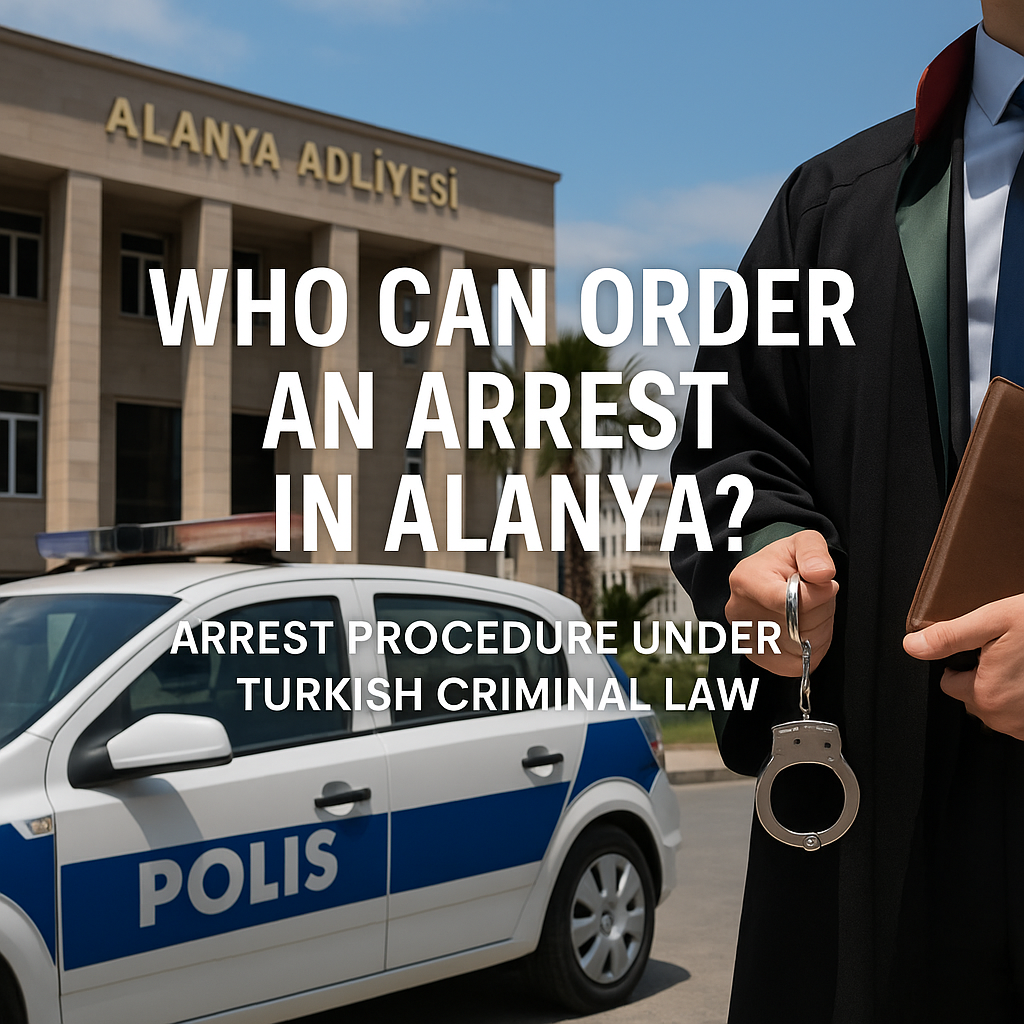
Who Can Order an Arrest in Alanya?
Who Has the Authority to Order an Arrest? | Arrest Procedure in Turkish Criminal Law
In Turkish criminal law, arrest is one of the most severe protective measures that can be taken against a suspect, as it directly restricts personal freedom. Therefore, this process is strictly regulated by law.
If you or a loved one are involved in a criminal investigation in Turkey—especially in Alanya—it's crucial to understand who can issue an arrest warrant and under what conditions.
As an Alanya criminal lawyer, we frequently receive questions about who has the authority to order an arrest. Let’s clarify the process.
Which Court Can Order an Arrest?
An arrest warrant can only be issued by a Criminal Judgeship of Peace (known in Turkish as Sulh Ceza Hakimliği).
Neither the public prosecutor nor the police has the power to directly arrest someone by decision. If the prosecutor believes an arrest is necessary, they must refer the suspect to the court with a formal request for arrest.
The judge will then evaluate the situation and decide whether or not to issue the arrest warrant.
Can the Prosecutor Order an Arrest?
No, the prosecutor does not have the authority to directly order an arrest.
The prosecutor collects evidence, takes statements, and if necessary, requests the court to arrest the suspect.
The judge listens to the suspect’s statement and then decides whether the person will be arrested or released with or without conditions (such as judicial control).
What Is the Role of the Criminal Judgeship of Peace?
This court is authorized to make decisions regarding:
- Arrests
- Judicial control (such as travel bans)
- Search and seizure warrants
It plays a central role during the investigation phase of a criminal case in Turkey. In Alanya, suspects under investigation often appear before this court.
When Can an Arrest Warrant Be Issued?
Under Article 100 of the Turkish Criminal Procedure Code (CMK), an arrest warrant can be issued if:
- There is strong suspicion that a crime has been committed, and
- There is at least one legal ground for arrest, such as:
- Risk of fleeing,
- Risk of tampering with evidence or influencing witnesses.
Also, not all crimes qualify for arrest. Generally, arrest is considered only when the alleged crime carries a minimum prison sentence of one year or more.
How to Appeal an Arrest Decision?
If an arrest warrant is issued, you have the right to appeal the decision.
The suspect or their lawyer must submit an appeal within 7 days of the decision.
A different Criminal Judgeship of Peace will then review the appeal. In Alanya, for example, one judge’s decision is reviewed by another judge in the same court system.
Alternatives to Arrest: Judicial Control Measures
The court may decide that arrest is not necessary and apply judicial control measures, such as:
- A ban on leaving Turkey
- House arrest or obligation to live at a specific address
- Prohibition from visiting certain places or contacting certain people
- Electronic monitoring (ankle bracelet)
- Signature obligation at police stations
These are less severe than arrest and can ensure the suspect remains under judicial supervision.
Conclusion: Legal Support Is Essential in Arrest Cases
An arrest decision can significantly impact a person's freedom, career, and family life.
That’s why seeking immediate legal assistance is vital to protect your rights and avoid long-term consequences.
As an experienced Alanya criminal lawyer, we guide our clients through every step of the arrest process, from police custody to court hearings.
If you or someone you know is facing arrest, don’t wait—get in touch with a criminal defense lawyer right away to ensure your rights are fully protected.
???? Contact us now and let us help you through the legal process.





